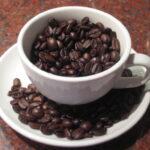Discover the Secret to a Healthier Life with L-Carnitine Recipes
Transform Your Health with These Tasty L-Carnitine Recipes!

L-Carnitine is known to have benefits for both males and females, and it is commonly used as a weight loss supplement.
Are you trying to boost your energy levels and kickstart a healthier lifestyle? If so, you’re not alone. Many of us want that extra push towards better health but aren’t sure where to start.
Incorporating essential nutrients into your diet can be a game-changer, and one such nutrient gaining attention is L-Carnitine. Found in different foods, it’s known for its potential to enhance exercise performance and support overall wellbeing.
Did you know that something as simple as adding certain meats or dairy products to your meals could pump up your body’s L-Carnitine supply? That’s right! With the right recipes, getting this nutrient can be both delicious and effortless.
Our upcoming guide offers tasty ways to include more L-Carnitine-rich foods into your daily routine without sacrificing flavor or fun at mealtime. Get ready – we’re about to transform how you view nutrition-packed cooking!
Key Takeaways
- L–Carnitine helps your body make energy and is found in foods like beef, chicken, fish, milk, and cheese. Plant lovers can find it in avocados, whole wheat bread, and asparagus too.
- Eating L–Carnitine might help your heart stay healthy, give you more power when you exercise, and be good for people with type 2 diabetes to keep their blood sugar steady.
- If you’re thinking about taking L-Carnitine pills to get more of it in your diet, talk to a doctor first because they could upset your stomach or not mix well with other medicine you take.
- You can enjoy tasty recipes that have a lot of L-Carnitine. Try grilled chicken flavored with lemon and herbs or salmon cooked with colorful veggies. A lentil and spinach salad or tofu stir-fry are good choices for vegetarians.
- When adding new things like L – Carnitine to what you eat or drink every day for better health or energy levels while working out or dealing with certain health problems like heart issues or diabetes, always check with a healthcare pro first.
What is L-Carnitine and its Role in the Body
L-Carnitine is a naturally occurring compound that plays a vital role in the body’s energy production. It helps transport fatty acids into the mitochondria, where they can be burned for energy, and also acts as an antioxidant.
There are different types of L-Carnitine, and it can be found in various food sources or taken as a dietary supplement.
Different Types
There are two main types of L-Carnitine in our bodies and foods. Acetyl-L-Carnitine is one type that’s good for the brain, while L-Carnitine L-Tartrate helps with muscles during exercise.
The kind you’ll find in food mostly comes from animal products like red meats and dairy foods. But don’t worry if you’re not into meat or milk; there are plant buddies too! Avocado has some, as well as whole-wheat bread and veggies like asparagus.
People also take this nutrient in pill form to get more into their body than what they eat. These supplements can help with things like working out better or even managing diabetes.
Just make sure to talk to a doctor first, especially if you’re taking other medicine. They will tell you how much to take so it helps without making your stomach upset or causing other problems.
Food Sources

L-Carnitine is found in small amounts in certain foods like beef, fish, and chicken, so it may be difficult for some people to get enough of it through their diet alone.
Beef, pork, and chicken are good sources of L-Carnitine. Also, dairy products like milk and cheese contain this nutrient. Fish, especially cod fish, is another food rich in L-Carnitine.
For those looking for non-animal sources, avocado is a good option as well. Some plant-based sources include whole-wheat bread and asparagus.
Lamb, beef steak, ground beef, and pork are top L-Carnitine foods. Red meat contains carnitine too. Non-animal sources of this nutrient include whole-wheat bread along with asparagus.
Dietary Supplements
L-Carnitine is naturally found in many foods, especially those from animals. If you’re unable to get enough L-Carnitine from your diet, it’s available as a dietary supplement. Red meat like lamb and beef are good sources of carnitine, but if you prefer non-animal sources, consider whole-wheat bread and asparagus.
It’s important to note that L-Carnitine can have side effects like stomach upset and diarrhea, so consulting with a healthcare professional before starting any supplement is crucial, especially if you take other medications or have health conditions.
Health Benefits of L-Carnitine
L-Carnitine has been shown to have numerous health benefits, including improving heart health, enhancing exercise performance, managing type 2 diabetes, and supporting cognitive function.
These benefits make it an important nutrient to include in a healthy diet.
Heart Health
L-Carnitine plays a crucial role in heart health by helping the body produce energy and promoting proper functioning of the heart muscle. Some studies suggest that L-Carnitine may support heart health by reducing inflammation and improving certain markers of heart function.
Additionally, it may help lower levels of fats in the blood, which can benefit cardiovascular health. Foods such as beef, fish, chicken, and dairy products are rich sources of L-Carnitine that can be included in a heart-healthy diet to potentially support overall cardiovascular wellness.
Consulting with a healthcare professional before considering any dietary supplements is essential to ensure it aligns with individual health needs.
Exercise Performance

L-Carnitine is naturally present in many foods, especially foods of animal origin, and is available as a dietary supplement.
L-Carnitine can help improve exercise performance by increasing the body’s energy production and reducing muscle fatigue. It does this by transporting fatty acids into the cells’ mitochondria, where they are burned for energy during physical activity.
This process can lead to improved endurance and a decrease in lactic acid buildup, allowing individuals to push harder and recover more quickly from intense workouts. Studies have shown that L-Carnitine supplementation may benefit athletes and active individuals looking to enhance their overall exercise capacity and get better results from their training sessions.
Animal-based sources such as beef, fish, and chicken are rich in L-Carnitine, making them suitable options for naturally boosting exercise performance. Additionally, plant-based sources like whole-wheat bread and asparagus can supplement the body’s L-Carnitine levels for improved physical performance.
Type 2 Diabetes
L-Carnitine may have benefits for people with Type 2 Diabetes. Some studies suggest that L-Carnitine can help improve insulin sensitivity, which is important for managing blood sugar levels in people with Type 2 Diabetes.
It is also believed to aid in the management of diabetic neuropathy, a type of nerve damage that can occur in individuals with diabetes. Including L-Carnitine-rich foods or supplements in the diet may support overall health for those with Type 2 Diabetes.
Cognitive Function
L-Carnitine supports cognitive function. It helps in brain health and energy production for the brain. Some research suggests that L-Carnitine may positively impact cognitive abilities, memory, and overall brain function.
Foods like beef, fish, and chicken contain L-Carnitine which can support cognitive health alongside other essential nutrients present in these foods. In addition to its role in supporting heart health and exercise performance, consuming L-Carnitine-rich foods may also contribute to maintaining good cognitive function.
Food Sources of L-Carnitine
Meat and dairy products are the primary sources of L-Carnitine, with red meat containing the highest levels. Plant-based sources like avocados, tempeh, and whole wheat bread also provide smaller amounts of L-Carnitine.
Meat and dairy products
Beef steak, ground beef, pork meat, and chicken are some of the primary animal-based sources of L-Carnitine. These foods contain high levels of this nutrient that supports heart health, exercise performance, and weight management.
Additionally, milk is another source rich in L-Carnitine that can be easily incorporated into various recipes for a healthy lifestyle. Dairy products such as cheese and yogurt also contribute to L-Carnitine intake alongside their other nutritional benefits.
Moreover, red meat stands out as an excellent source of carnitine while providing essential proteins for the body’s overall well-being. When considering dietary options to increase L-Carnitine consumption, incorporating these animal-based products into balanced meals can significantly contribute to meeting the body’s nutritional needs.
Plant-based sources
While meat and dairy products are rich sources of L-Carnitine, plant-based sources also offer this essential nutrient. Avocado is a notable non-animal source of L-Carnitine, making it an excellent choice for those seeking alternative sources.
Additionally, whole-wheat bread and asparagus are also known to contain L-Carnitine, providing viable options for individuals following a plant-based diet. Incorporating these foods into meals can contribute to meeting the body’s L-Carnitine needs without relying solely on animal-derived products.
 Experience the world’s first and only 100% safe and natural L-Carnitine formula that, when combined with your morning coffee, enhances the speed and efficiency of your metabolism. Join thousands who have electrified their metabolism, torched fat, enjoyed all-day energy, and improved health effortlessly. Take advantage of this limited-time offer for special discounts on 90 and 180-day packages. Backed by a 60-day money-back guarantee, take your risk-free path to a healthier, more energetic you. Don’t miss out on this exclusive opportunity – try it today! Advertisement
Experience the world’s first and only 100% safe and natural L-Carnitine formula that, when combined with your morning coffee, enhances the speed and efficiency of your metabolism. Join thousands who have electrified their metabolism, torched fat, enjoyed all-day energy, and improved health effortlessly. Take advantage of this limited-time offer for special discounts on 90 and 180-day packages. Backed by a 60-day money-back guarantee, take your risk-free path to a healthier, more energetic you. Don’t miss out on this exclusive opportunity – try it today! Advertisement
Incorporating L-Carnitine-Rich Recipes into a Healthy Lifestyle
Enjoy delicious and nutritious L-Carnitine-rich meals like grilled chicken with lemon and herbs, baked salmon with vegetables, lentil and spinach salad with feta cheese, and tofu stir-fry with broccoli and brown rice to support your healthy lifestyle.
Grilled chicken with lemon and herbs

Some of the best foods rich in L-Carnitine include beef steak, ground beef, pork meat, milk, cooked cod fish, and chicken.
Grilled chicken with lemon and herbs is a tasty way to get L-Carnitine in your diet. Chicken is one of the top animal-based sources of L-Carnitine, and when you grill it with lemon and herbs, you’ll have a delicious dish that’s also rich in this nutrient.
The tangy flavor of lemon combined with the aromatic herbs makes this dish flavorful and beneficial for your health. Adding this recipe to your healthy lifestyle can be an easy and enjoyable way to increase your L-Carnitine intake while savoring a nutritious meal.
Baked salmon with vegetables
Salmon is a great source of L-Carnitine, promoting heart health and exercise performance. Baking salmon with colorful vegetables like asparagus, bell peppers, and zucchini not only creates a delicious meal but also packs it with essential nutrients.
The omega-3 fatty acids in salmon support cognitive function, while the combination of vegetables adds fiber and vitamins necessary for overall health. This dish is an easy way to incorporate L-Carnitine into your diet while enjoying a flavorful and nutritious meal.
Lentil and spinach salad with feta cheese
Moving from the protein-rich Baked Salmon, a Lentil and Spinach Salad with Feta Cheese is a nutritious option rich in L-Carnitine. This salad packs a punch with plant-based sources of L-Carnitine like spinach and lentils, while also offering a dose of feta cheese for added flavor.
Spinach is known to be one of the top non-animal sources of L-Carnitine, making this salad not only delicious but also beneficial for those looking to incorporate more L-Carnitine into their diet.
Lentil and spinach salad with feta cheese LCarnitin recipe Healthy recipes with LCarnitine Plantbased LCarnitin sources_NODES_
Tofu stir-fry with broccoli and brown rice
Tofu stir-fry with broccoli and brown rice is a delicious way to incorporate L-Carnitine into a plant-based meal. Tofu contains L-Carnitine, which can help in weight management and improving energy levels.
Broccoli and brown rice add fiber, vitamins, and minerals to support overall health. This dish provides a balanced combination of nutrients for a satisfying and nutritious meal.
Next up, let’s explore the precautions and possible interactions of incorporating L-Carnitine into your diet.
Precautions and Possible Interactions

It is important to consult with a healthcare professional before starting any L-Carnitine supplement, as it may interact with certain medications or have contraindications for certain health conditions.
Be mindful of the recommended dosage and possible side effects of L-Carnitine, as well as any interactions with medications. Consult with a healthcare professional before use to ensure safety and effectiveness.
Read more to learn about incorporating L-Carnitine into your healthy lifestyle.
Recommended Dosage
The recommended dosage of L-Carnitine varies depending on the specific health goal. For general supplement use, a common dosage ranges from 500 mg to 2,000 mg per day. Meanwhile, athletes and those seeking enhanced exercise performance may take up to 4,000 mg daily.
It’s important to consult with a healthcare professional before starting any L-Carnitine supplement, as it may interact with certain medications or have contraindications for certain health conditions.
It’s also vital to note that while the body generally tolerates L-Carnitine well in recommended doses, exceeding these amounts may lead to side effects such as nausea, vomiting, stomach upset, diarrhea, or seizures.
Possible Side Effects
L-Carnitine supplements may cause side effects like nausea, vomiting, upset stomach, heartburn, diarrhea, and even seizures. It’s important to be aware of these potential side effects and stop taking the supplement if you experience any of them.
Make sure to consult with a healthcare professional before starting L-Carnitine supplements, especially if you’re taking medications or have underlying health conditions. Always prioritize your safety and well-being when considering dietary supplements.
Remember that consulting a healthcare professional is vital before starting any L-Carnitine supplement due to possible interactions with medications and potential contraindications for certain health conditions.
Interactions with Medications
L-Carnitine supplements may interact with certain medications, so it’s crucial to consult with a healthcare professional before adding them to your routine. These supplements can have interactions with blood thinners like Warfarin and may also affect the effectiveness of certain thyroid medications.
Additionally, they might have contraindications for individuals with kidney disease or undergoing hemodialysis treatment. Being cautious about potential interactions is essential for anyone considering the use of L-Carnitine supplements in conjunction with their existing medication regimen.
Consult with a healthcare professional before use.
Before starting to use L-Carnitine supplements, it’s crucial to consult a healthcare professional. They can assess your individual health status and advise on the suitability of L-Carnitine supplementation for your specific needs.
This is especially important if you are currently taking any medications or have underlying health conditions, as L-Carnitine may interact with certain drugs or be contraindicated for particular medical situations.
Always seek professional guidance before incorporating L-Carnitine into your dietary or supplement regimen to ensure its safety and appropriateness for your overall well-being.
“Boost Your Lifestyle Game With L-Carnitine: Say Hello To Boundless Energy (wherecanibuythat.us)“
Conclusion

Red meat is a good source of carnitine, and non-animal sources include whole-wheat bread and asparagus.
In conclusion, the recipes and strategies presented offer simple ways to incorporate L-Carnitine into a healthy lifestyle. You can easily enjoy grilled chicken with lemon and herbs or baked salmon with vegetables.
Have you considered trying a lentil and spinach salad with feta cheese? These practical recipes are efficient for boosting your L-Carnitine intake. Remember, consulting with a healthcare professional before starting any supplement is essential for your well-being.
By making these small dietary changes, you can significantly impact your overall health and well-being. Keep exploring new ways to enrich your diet and enhance your fitness journey!
FAQs
1. What is L-Carnitine and why should I add it to my diet?
L-Carnitine is a nutrient that helps turn fat into energy and supports a healthy lifestyle. It’s found in foods high in L-Carnitine, like animal-based foods and some plants.
2. Can eating L-Carnitine-rich recipes help with weight loss?
Yes, meals rich in L-Carnitine have been linked to weight loss because they can boost the process of burning fat, especially when combined with fitness activities.
3. Are there any risks of taking too much L-Carnitine?
While adding L-Carnitine to your diet has benefits, taking more than the recommended dosage may lead to side effects. It’s best to stick to the right amount or ask a doctor.
4. What types of food have lots of L-Carnitine?
Animal-based sources like poultry are high in L-Carnitine. You can also include plant-based sources in your LCarnitinrich recipes for variety.
5. How can I get enough L-Carnitine from plant-based sources if I don’t eat meat?
Certain foods on a plant-based diet still offer some amount of LCarnitin even though animal products usually contain higher levels; look for these options or consider supplements if needed.
Source URLs
https://ods.od.nih.gov/factsheets/Carnitine-HealthProfessional/
https://www.livestrong.com/article/22647-foods-containing-l-carnitine/
https://www.healthline.com/nutrition/l-carnitine


















